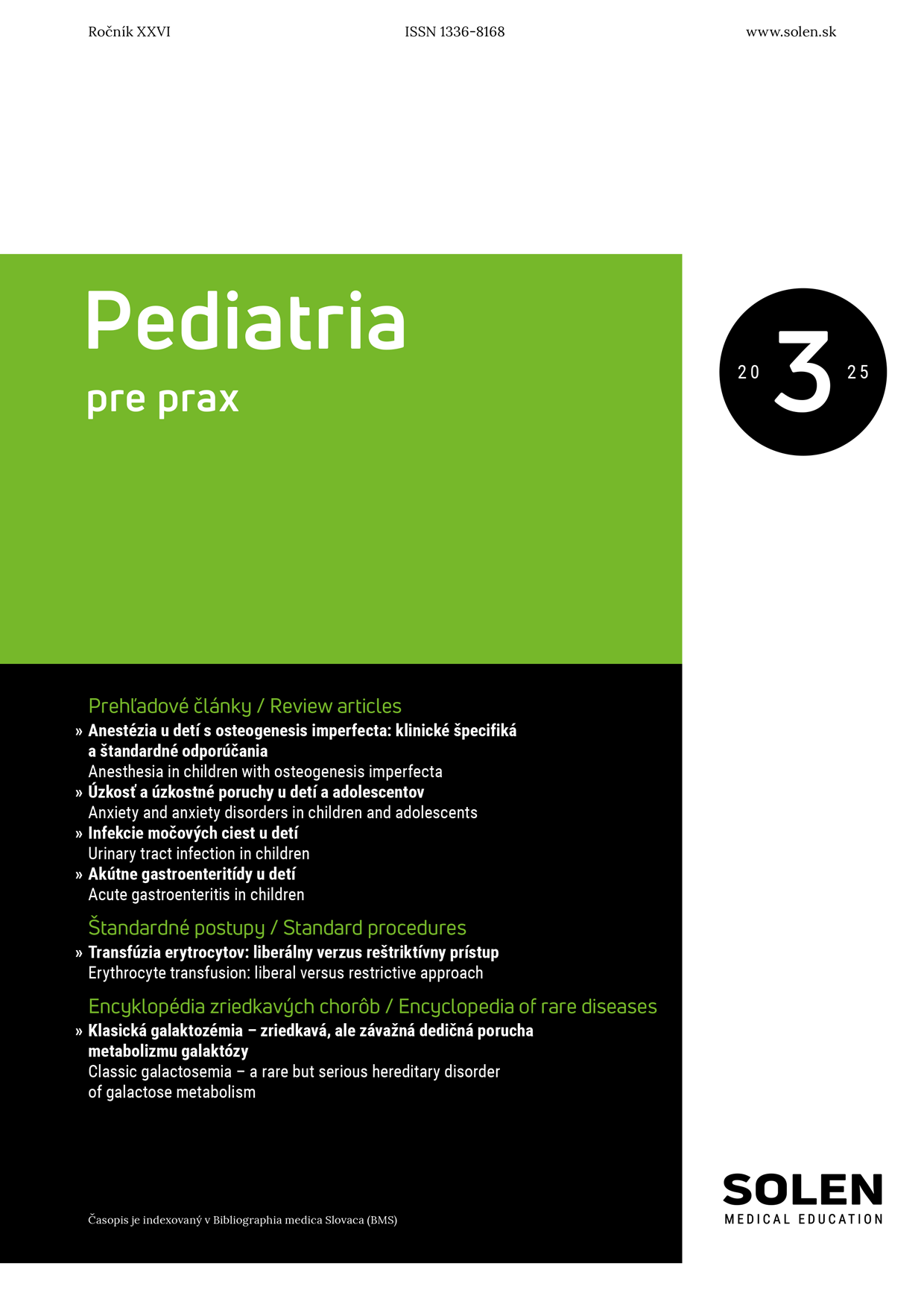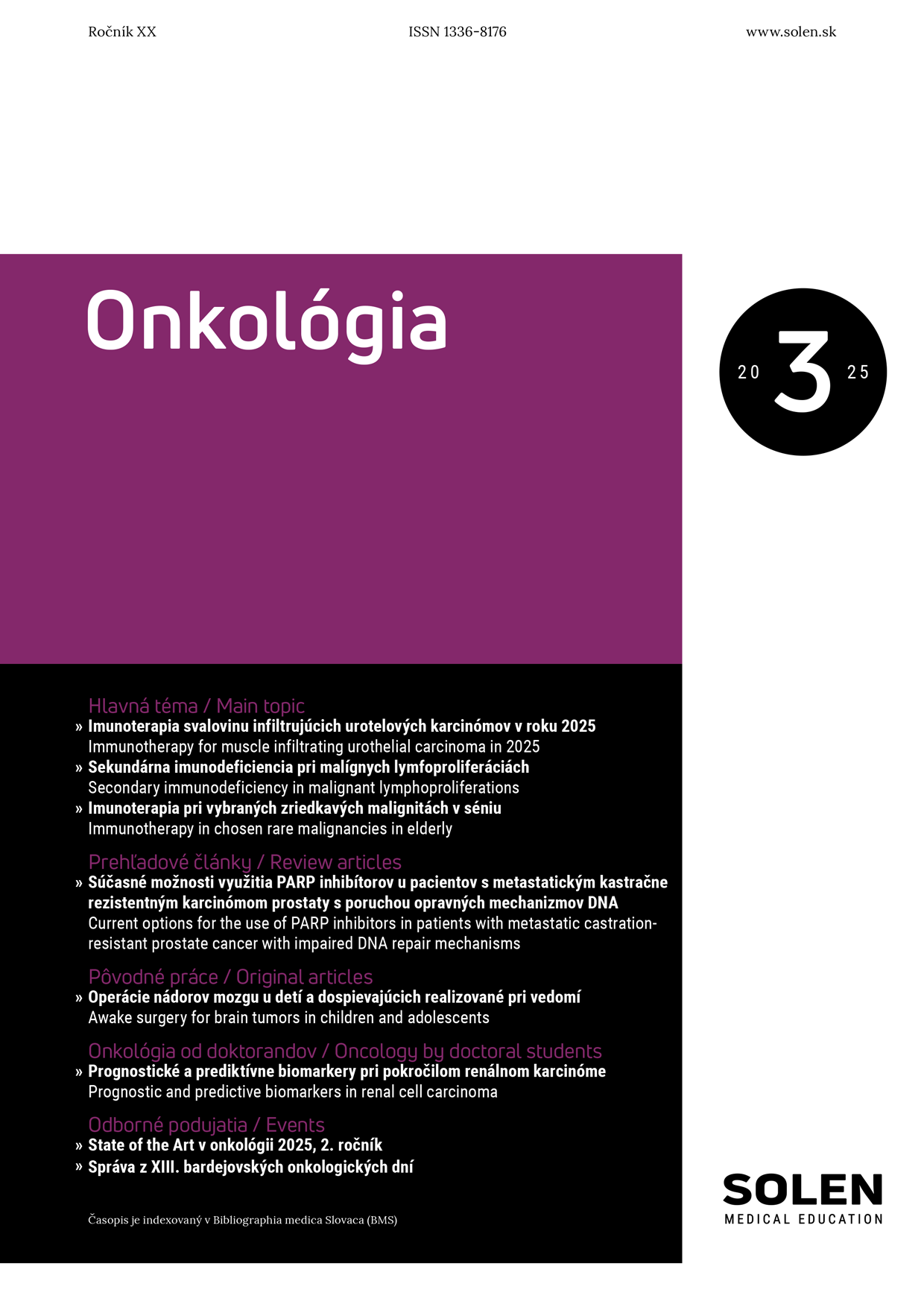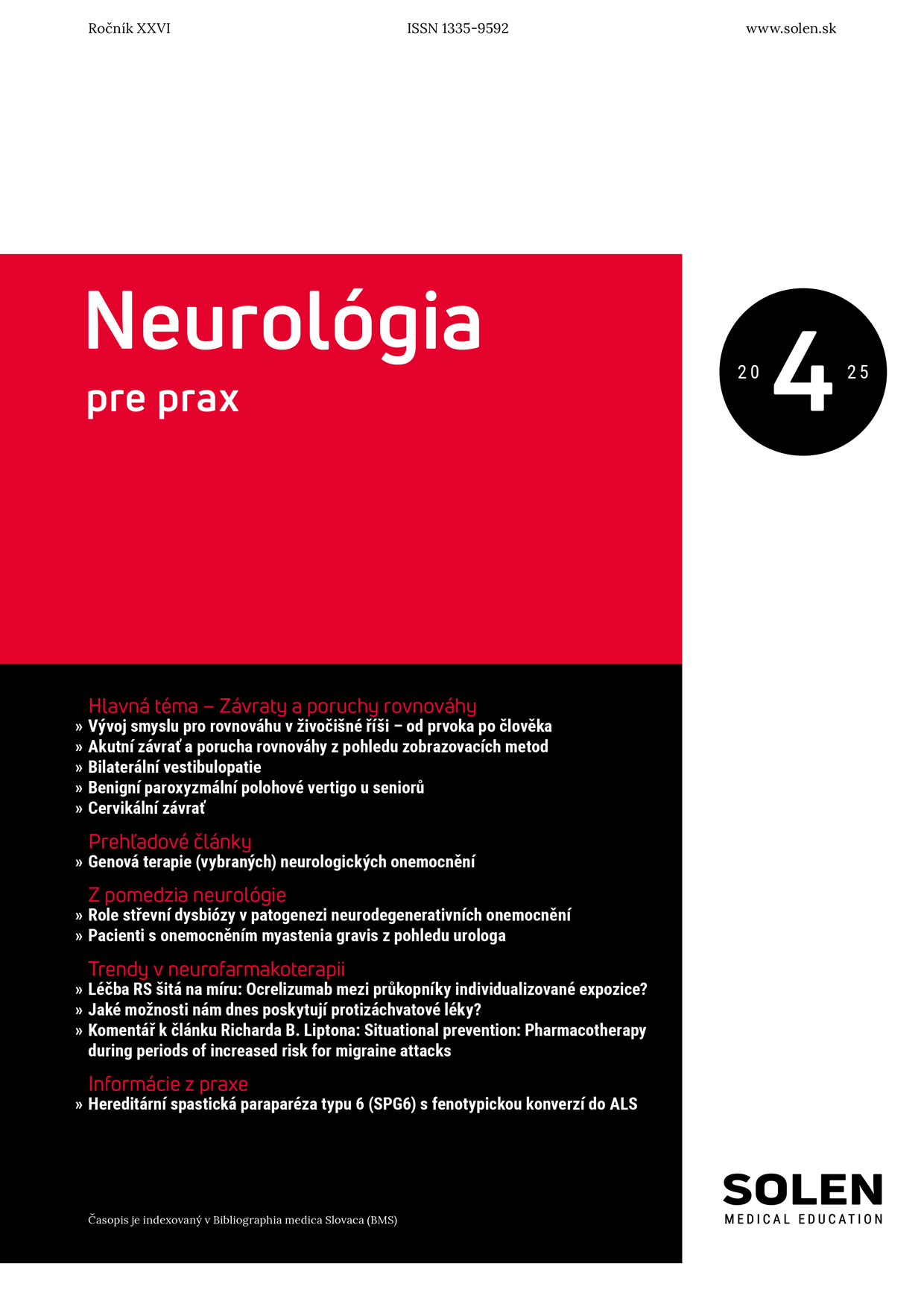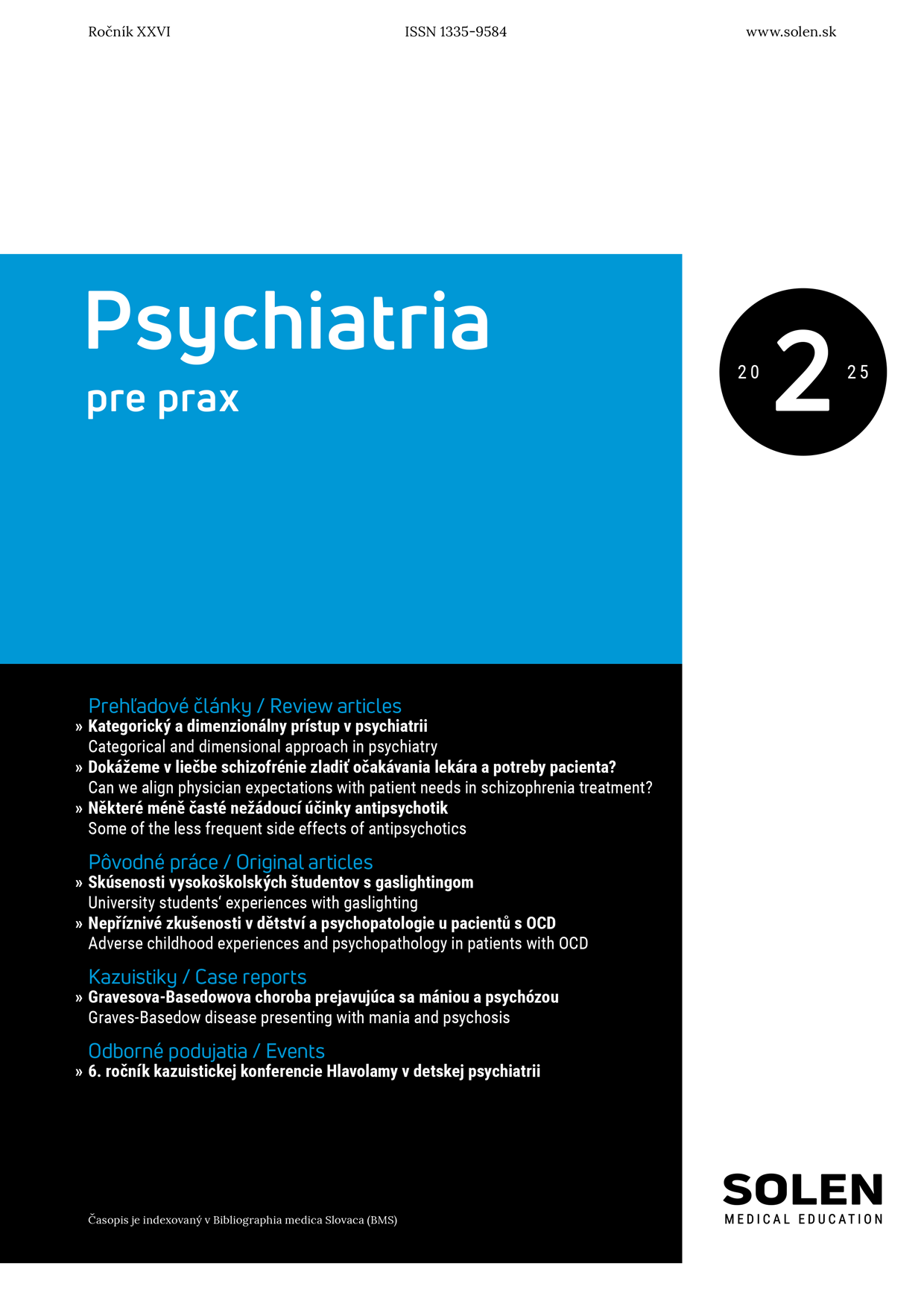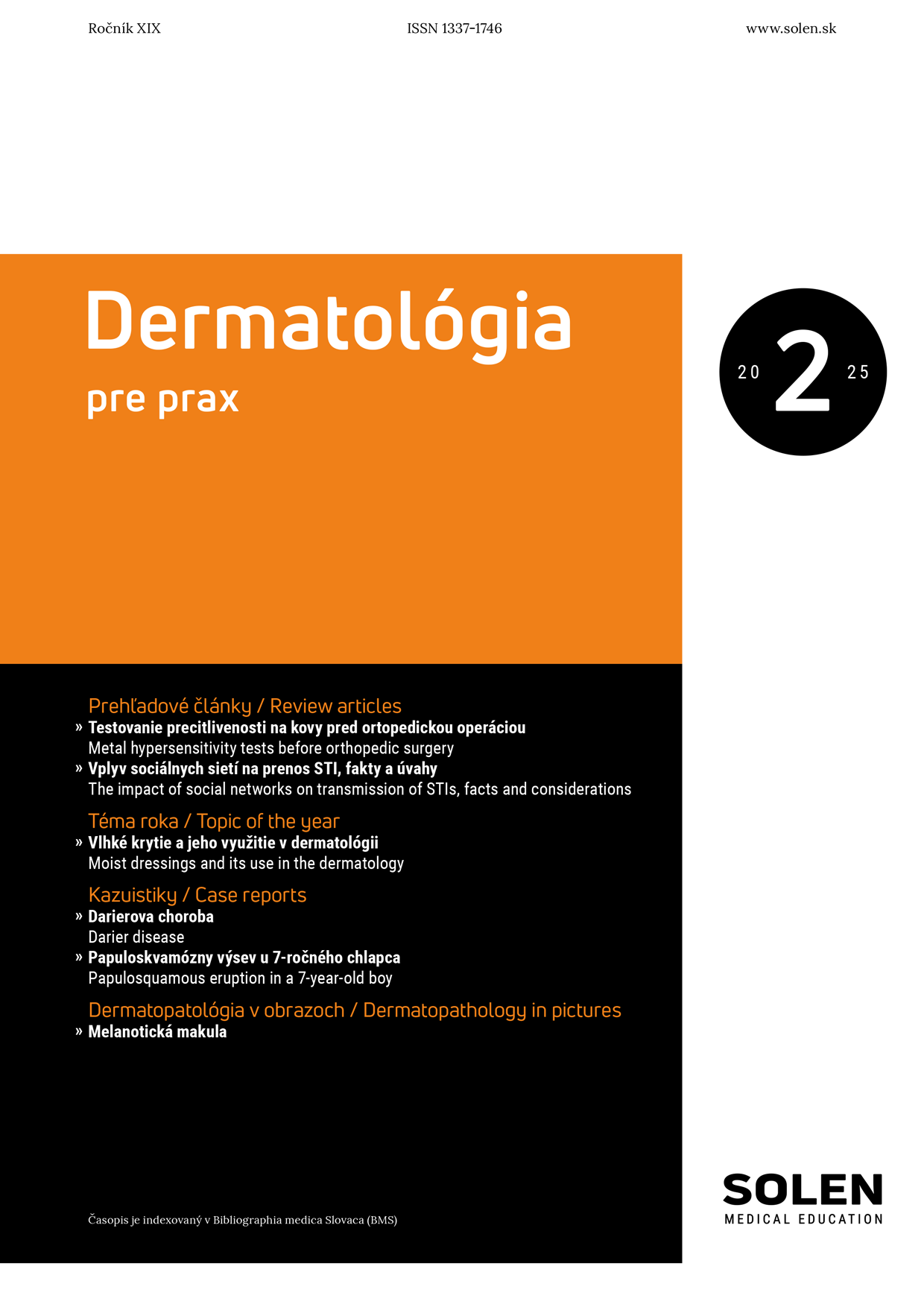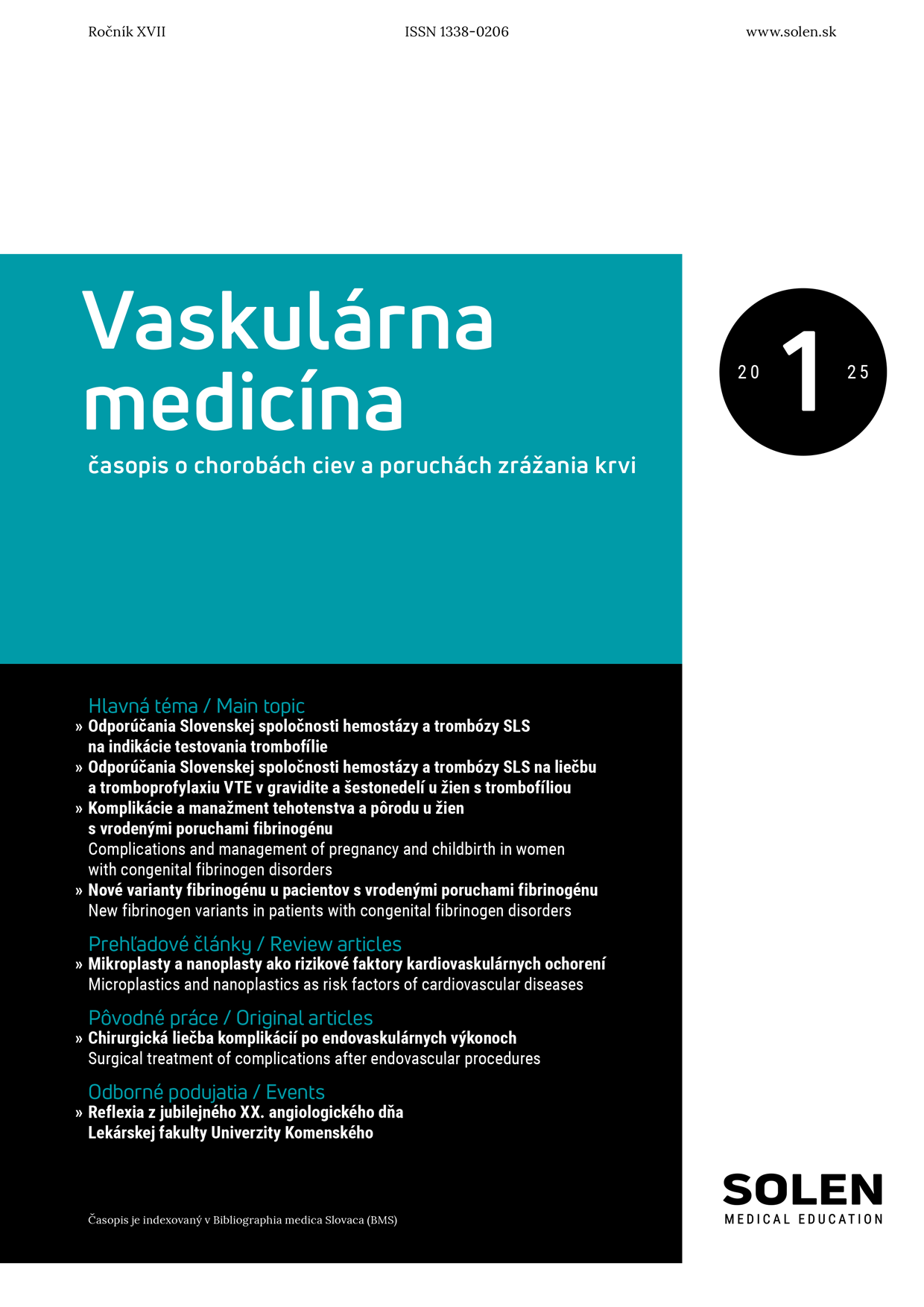Onkológia 6/2013
Personalizovaná liečba metastatického kolorektálneho karcinómu
Liečba metastatického kolorektálneho karcinómu (mKRK) je založená na aplikácii systémovej paliatívnej chemoterapie v kombinácii s biologickou liečbou. Cetuximab a panitumumab blokujú receptory pre epidermálne rastové faktory (EGFR), a tým selektívne ovplyvňujú proliferáciu, apoptózu, angiogenézu a metastázovanie nádorových buniek. Sú účinné u pacientov s „wild type“ KRAS mKRK, takže prítomnosť mutácií v KRAS onkogéne je negatívny prediktívny faktor odpovede na liečbu EGFR inhibítormi. Ďalšie aktívne mutácie RAS môžu byť takisto negatívnymi prediktívnymi biomarkermi anti-EGFR liečby.
Kľúčové slová: metastatický kolorektálny karcinóm, monoklonové protilátky, RAS mutačný stav.
Personalized medicine approach in metastatatic colorectal cancer
The treatment of metastatic colorectal cancer (mCRC) is based on systemic palliative chemotherapy in combination with biologic therapy. Cetuximab and panitumumab block the epidermal growth factor receptors (EGFRs) and thus selectively influence proliferation, apoptosis, angiogenesis and metastasis of tumor cells. They are both effective in patients with KRAS „wild type“ mCRC, so the identification of mutations of KRAS is predictive factor of resistence to anti-EGFR antibodies. Other activating RAS mutation may also be negative predictive biomarkers for anti-EGFR therapy.
Keywords: metastatic colorectal cancer, monoclonal antibodies, RAS mutational status.


